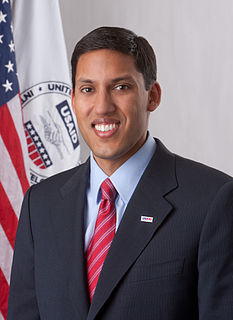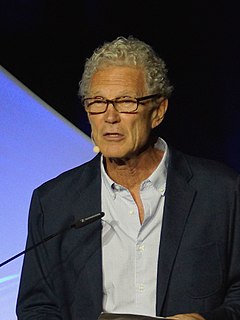A Quote by Jessica Bennett
Relate your ask to the group at large by using "we" instead of "I." So I might say, "We grew our traffic by X percent this quarter and it was awesome; I brought in X percent of that." It also helps when women make it about collaboration: This is not a battle - you want to work together with the other person to get to a place you are both happy with - so remind them you're trying to come to a mutually beneficial agreement.
Related Quotes
Women are raised to be the nurturers and steadiers of rocked boats, to hold relationships in place as if our lives depended on it. But it shores up your own dignity and integrity if you're able to say, "There are a million things I love about you, and I want our relationship to continue. I forgive you 95 percent, but not this 5 percent."
Great people in the United States have been disenfranchised.I'll give you an example, it has always been the way to do it, to work hard, save your money, put your money in the bank, get interest on your money and retire wealthy, at least modestly wealthy. Well, the people that have done that have been hurt terribly because there is no interest on your money. You get no money. I just signed for some CDs where you are getting a quarter of one percent. A quarter of one percent! They don't even want your money, the banks.
In order to be successful at anything you choose to do, you must make a 100 percent commitment to what it is you are trying to do. If you put 50 percent of your ability into it, that is all that you will get out of it. You must discipline your body and your mind to work towards the goals you have set. Once you have made this decision, then the work begins.
If we continue on the trend we’re on, we can reduce extreme poverty by more than 60 percent-lifting more than 700 million people out of dollar-and-a-quarter a day poverty and back from the brink of hunger and malnutrition. But if we accelerate our progress from 3 percent annual reduction to over 6 percent and focus on key turnarounds in some difficult countries, we could get a 90 percent reduction. We could essentially eliminate dollar-and-a-quarter head count poverty.
The bottom quarter of the human population has only three-quarters of one percent of global household income, about one thirty-second of the average income in the world, whereas the people in the top five percent have nine times the average income. So the ratio between the averages in the top five percent and the bottom quarter is somewhere around 300 to one - a huge inequality that also gives you a sense of how easily poverty could be avoided.
In the Great Depression in which I grew up and remember vividly, unemployment was over 25 percent, and over 35 percent where I lived. A grown man would work all day, 16 hours, for a dollar. I remember hundreds of people walking by, people who had come down from the North just to get warm. They would come to our house as beggars even though they might have a college education. People didn't have money. They bartered; they'd trade eggs or pigs. It was just completely different.
I have wasted the greater part of my life looking for money and trying to get along, trying to make my work from this terribly expensive paintbox, which is a movie. And I've spent too much energy on things that have nothing to do with making a movie. It's about two percent moviemaking and ninety-eight percent hustling. It's no way to spend a life.
Economists often talk about the 80/20 Principle, which is the idea that in any situation roughly 80 percent of the “work” will be done by 20 percent of the participants. In most societies, 20 percent of criminals commit 80 percent of crimes. Twenty percent of motorists cause 80 percent of all accidents. Twenty percent of beer drinkers drink 80 percent of all beer. When it comes to epidemics, though, this disproportionality becomes even more extreme: a tiny percentage of people do the majority of the work.

































